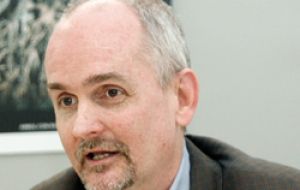MercoPress. South Atlantic News Agency
Latam development bank plans more flexible loans tailored to countries needs
 IDB CFO and Finance Department Manager Edward Bartholomew flexible financial solutions to better manage risks
IDB CFO and Finance Department Manager Edward Bartholomew flexible financial solutions to better manage risks The Inter-American Development Bank (IDB) announced the approval of a Flexible Financing Facility (FFF) that will enable Latin American and Caribbean countries to tailor loan terms and conditions to suit their individual needs, as well as to use hedges to manage interest rate and currency risks associated with their IDB debt.
The FFF, which will become fully operational on January 1, 2012, will replace the current platform for approval of sovereign guaranteed loans from the Ordinary Capital, the IDB principal source of lending.
“Countries’ financial needs frequently change during the life of our loans. These flexible financing solutions will allow our sovereign borrowers to better manage risks, whether at a project level, in their broader lending programs or as part of comprehensive asset and liability management strategies,” said IDB CFO and Finance Department Manager Edward Bartholomew.
As a triple-A rated multilateral agency, the IDB transfers the benefits of its low-cost funding to its sovereign borrowers, offering them access to long-term lending to finance their development needs. FFF loans will be priced using standard market benchmarks, such as LIBOR, resulting in more transparent and predictable pricing.
Under the FFF, borrowers will be able to divide loans into tranches or sub-loans with different characteristics, such as repayment schedules, currencies or interest rate bases. The flexibility to choose different amortization profiles will enable borrowers to select structures to best match project cash flows, such as uneven amortization schedules, and extended grace periods.
Borrowers will also have the flexibility to manage interest rate and currency risk exposures of their IDB loans to facilitate asset liability management strategies. These options will be available at loan signature or throughout the life of loans, on part or full outstanding balances.
According to IDB, the adoption of the Flexible Financing Facility is part of a broader agenda of reforms the bank is carrying out to better meet the needs and expectations of its member countries, which last year agreed to the largest capital increase in the institution’s history.




Top Comments
Disclaimer & comment rulesCommenting for this story is now closed.
If you have a Facebook account, become a fan and comment on our Facebook Page!